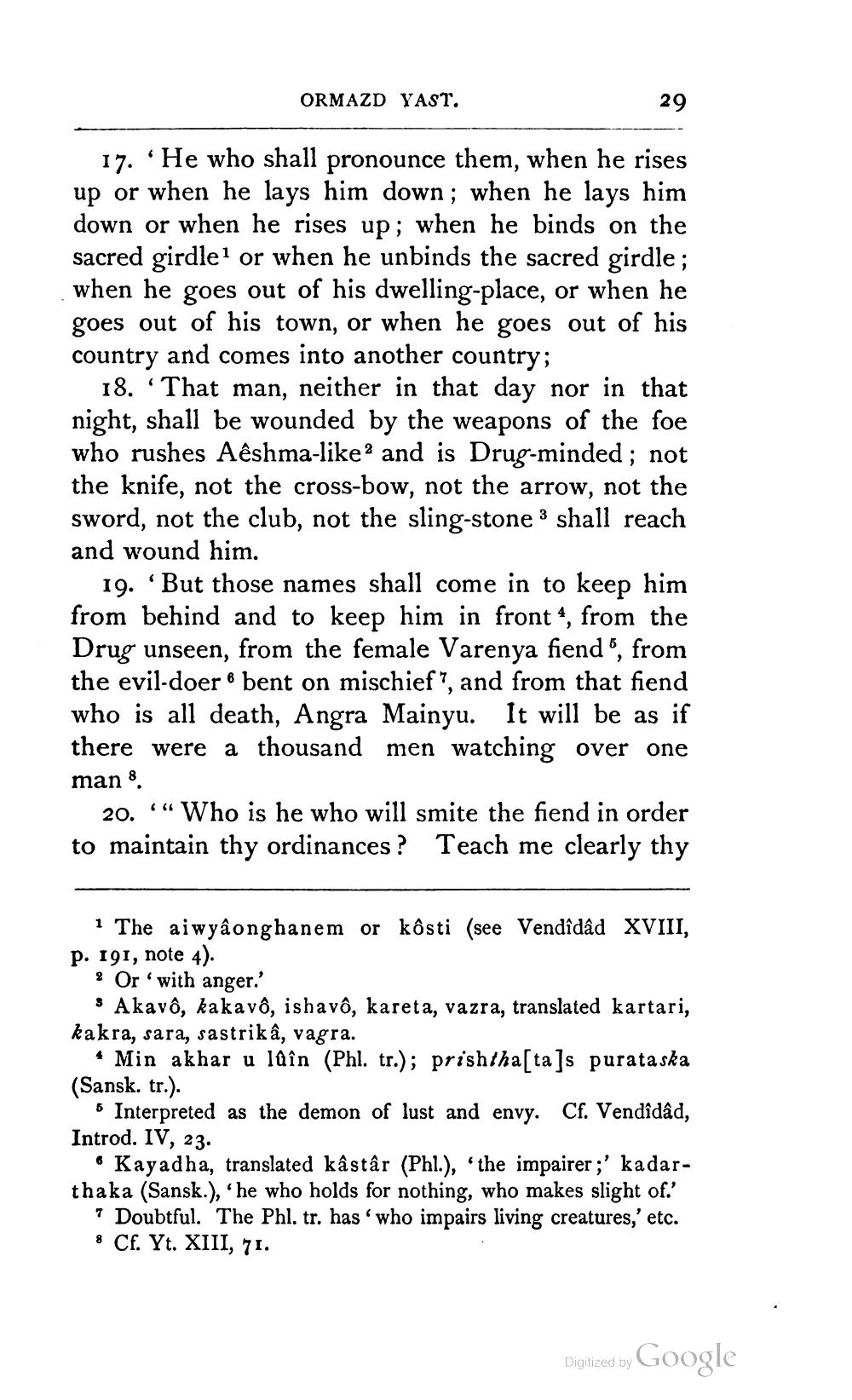________________
ORMAZD YAST.
29
17. "He who shall pronounce them, when he rises up or when he lays him down; when he lays him down or when he rises up; when he binds on the sacred girdle? or when he unbinds the sacred girdle ; when he goes out of his dwelling-place, or when he goes out of his town, or when he goes out of his country and comes into another country;
18. 'That man, neither in that day nor in that night, shall be wounded by the weapons of the foe who rushes Aêshma-like and is Drug-minded; not the knife, not the cross-bow, not the arrow, not the sword, not the club, not the sling-stone 3 shall reach and wound him.
19. 'But those names shall come in to keep him from behind and to keep him in front 4, from the Drug unseen, from the female Varenya fiend", from the evil-doer bent on mischief", and from that fiend who is all death, Angra Mainyu. It will be as if there were a thousand men watching over one man.
20. ““ Who is he who will smite the fiend in order to maintain thy ordinances ? Teach me clearly thy
1 The aiwyâonghanem or kôsti (see Vendîdâd XVIII, p. 191, note 4).
Or with anger.' s Akavô, kakavô, ishavô, kareta, vazra, translated kartari, kakra, sara, sastrikâ, vagra.
* Min akhar u làîn (Phl. tr.); prishtha[ta]s purata ska (Sansk. tr.).
o Interpreted as the demon of lust and envy. Cf. Vendîdâd, Introd. IV, 23.
o Kayadha, translated kâstâr (Phl.), 'the impairer;' kadarthaka (Sansk.), ' he who holds for nothing, who makes slight of.'
? Doubtful. The Phl. tr. has 'who impairs living creatures,' etc. 8 Cf. Yt. XIII, 71.
Digitized by Google




